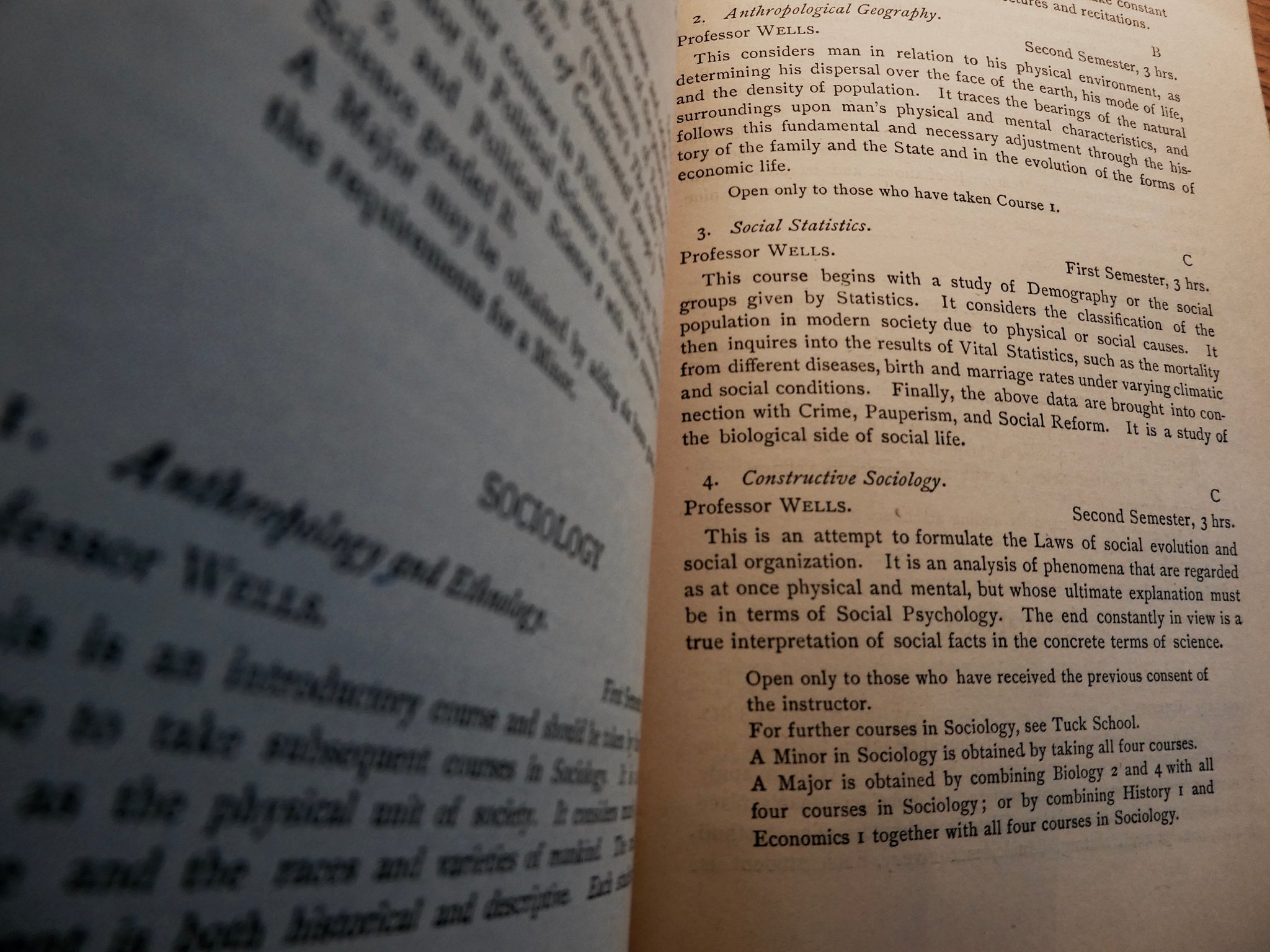As the culmination to my academic major, I dug into the institutional history of the sociology department at Dartmouth College exposing the many nuances to this small facet of Hanover’s bustling campus. Through archival records, interviews, and my own student perspective, I weaved together a virtual narrative that chronicles the inception, development and formation of the current curriculum of sociology at Dartmouth. A couple of clear themes have emerged throughout this process: (1) since its conception, the sociology department has been committed to reflecting and expanding upon real-world social phenomena in the classroom, a concept driven by educators throughout time, (2) in this way, professor’s lived experiences and niche fields have molded the unique curriculum, and (3) current classes offered can be traced back to very early stages of the department’s formation. The first theme is expanded upon in the “Important Moments in History” section, the second is explained in the “Notable Professors” section, while the third is deeper explored within the “The Curriculum Through Time” tab.
The department has certainly pivoted throughout the years to both reflect macro-level changes in the social world, the discipline and the institution, and mirror micro-level shifts in personnel and student preferences–however, much of the current curriculum is rooted in the department’s origins. The flexible nature of department throughout the years has attracted numerous Dartmouth students, past and present. In the future, I encourage Dartmouth students to continue to embrace sociology here at Dartmouth. As a senior major myself, I have reaped the benefits of the relevant course-matter, committed professors and a tight-knit academic community.
Dartmouth Department of Sociology’s Mission Statement: “In practice, we study individuals’ relationships not only to society, writ large, but also to nation states, to organizations, to institutions, to groups, and to one another. We study identity processes and social interaction at the micro-, meso- and macro- levels. We study processes of social organization and social movements that have the capacity to both reify existing social structures and lead to lasting social change. We study major social institutions and national and supra-national political and economic structures. We do so comparatively and embed our investigations in the currents of history. Following in the footsteps of classical and contemporary social theorists, the Sociology Department at Dartmouth focuses on some of the most pressing issues of our time, including poverty, income inequality, neighborhood segregation, domestic inequality, the prison system, access to health care, the decline of organized labor, comparative political change, and democracy movements, among others. We also study day-to-day life as a microcosm of the structures and societal arrangements in which we live. We do so by adopting a variety of methodological and theoretical tools that characterize the diversity of the discipline as a whole. The goals of the department are threefold: (1) to produce cutting-edge sociological scholarship that will advance the discipline empirically and theoretically, (2) to provide our undergraduates with a top-notch education in sociology, and (3) to provide all students who take sociology courses with an understanding of the sociological imagination, sociological research and social ‘facts’ about the world, as well as an understanding of the role of social science within the purview of a more general liberal arts education.” Department External Review, 2013.
